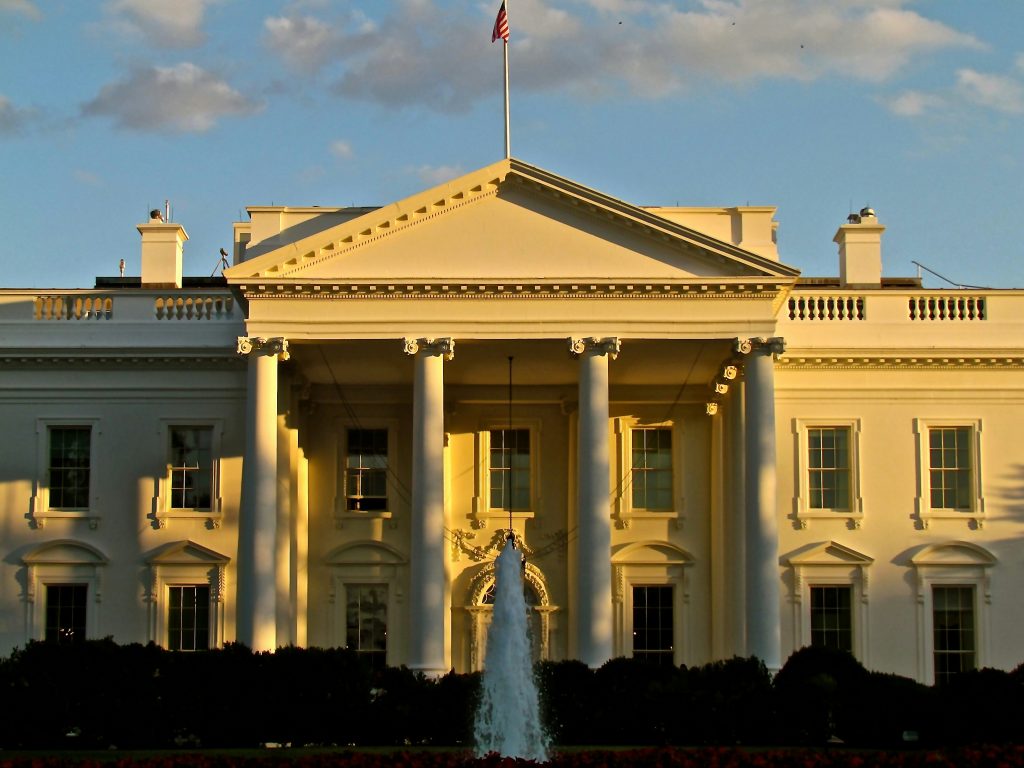Russia Under Fire: How Russians Are Coping with U.S. Sanctions
Russia under Fire: How Russians Are Coping with U.S. Sanctions
By Ruzanna Mirzoyan*
Historically, warfare was the predominant method of solving conflicts between countries, but after World War I, the United States expanded its use of economic sanctions.[1] Sanctions are a nonviolent form of coercion that also push forward a specific policy or political agenda.[2] However, some have argued that “in reality, economic sanctions are by no mean’s peaceful and quite often deadlier and more destructive than military action.”[3] Currently, the United States uses financial and economic sanctions more than any other country.[4] Sanctions can vary, but common penalties are travel bans, embargoes, export controls, capital controls, trade sanctions, and asset freezes.[5]
In the United States, sanctions can originate in either the executive or legislative branch, but they typically start with the president issuing an executive order that declares a national emergency in response to an “unusual and extraordinary foreign threat.”[6] Recently, President Biden issued Executive Order 13661, sanctioning the Russian Federation for its invasion of Ukraine.[7]
The U.S. sanctions have cut off Russia’s largest bank, Sberbank, from the U.S. financial system, and entirely blocked Russia’s second-largest bank, VBT.[8] Additionally, U.S. sanctions have restricted Russian technology exports and prohibited any United States technologies produced by foreign countries, such as semiconductors, lasers, sensors, and maritime technologies.[9] More surprisingly, Switzerland, abandoned its ancient neutrality and imposed sanctions against Russia and Vladimir Putin by freezing any assets belonging to Putin, Prime Minister Mikhail Mishustin and Foreign Minister, Sergey Lavrov.[10] Switzerland is also closing its airspace to Russia and have an entry ban for individuals closely connected to Putin.[11]
Whether sanctions are effective depends on various factors such as the country’s size, assets, and natural resources. In Russia’s case, the current sanctions are slowly suffocating the country. In response, Russia announced a temporary ban on grain and sugar sales to ex-soviet countries, such as Armenia, to ensure its army and people have enough.[12] However, Armenia heavily relies on trade with Russia, and this ban will increase prices of essential goods for Armenian people.[13] Therefore, sanctions against Russia have artificially expanded and now affect small countries which are not responsible for Russia’s invasion. Furthermore, while not under a direct order from the United States government, there is social pressure for private companies to act.[14] Companies like Chanel, Hermés, Netflix, Instagram, Nike, Boeing, Apple, and DLA Piper, have taken a stand against the war and exited Russia.[15]
Many Russian people strongly oppose the war in Ukraine and have even risked their freedom by publicly protesting.[16] But while many Russians have exhibited brave acts in condemning the government, they have little to no say on the sanctions imposed against Russia. The country has virtually reverted to its Soviet state when Western influence or goods were strictly prohibited. However, Russians have become reliant on working for American companies, purchasing goods from American retailers, and using American media platforms; without them Russians face a drastic lifestyle change that also creates immense financial constraints. Openly protesting the war or expressing support for Ukraine can face up to twenty years in prison, so people are protesting with their feet.[17] As many as 200,000 Russians have fled to nearby countries like Georgia, Armenia, and Turkey.[18] According to one Russian, many feel that “the only way we can protest is to leave the country, take our skills and money with us.”[19] With air travel becoming increasingly limited, people are traveling by car or train.[20]
While Russian people are finding new homes in cities like Tbilisi, Georgia, or Yerevan, Armenia, they struggle to feel accepted as locals are hesitant to accept them. Particularly for Georgia, it has been only fourteen years since Russia invaded Georgia, and some citizens fear another invasion. However, Armenia is seeing a potential opportunity to grow its IT businesses and is positioning itself as an attractive destination.[21] Software engineers and others alike are motivated to begin anew in Armenia, as locals speak Russian, the cost of living is low relative to Moscow, and Russians do not need a work permit.[22]
Furthermore, Russians are struggling financially, even if they previously lived comfortably as many cannot access their bank accounts and withdraw their money.[23] Those who rely on their relatives abroad for financial support also cannot receive any money because payment companies like Wise and Remotely suspended their service to Russia.[24] But tech entrepreneurs have found ways to connect the newcomers on a messaging app, Telegram.[25] There, Russians can discuss where to find housing, how to open bank accounts, and whether it is safe to speak Russian.[26]
While the United States hoped its sanctions would curtail Russia’s invasion of Ukraine, the sanctions have stimulated a massive exodus from the country. This may not be a violent style of warfare, but this exodus may nonetheless damage Russia’s government, people, and economy. However, the extent of that damage is yet to be seen, meanwhile there is hope for Russians to begin new lives.
* J.D. Candidate, Class of 2023, Sandra Day O’Connor College of Law at Arizona State University.
[1] Justin Stalls, Article: Economic Sanctions, 11 Miami Int’l & Comp. L.Rev. 115, 116 (2003).
[2] Id.
[3] Id.
[4] Jonathan Masters, What Are Economic Sanctions? Council on Foreign Relations(August 12, 2019), https://www.cfr.org/backgrounder/what-are-economic-sanctions#chapter-title-0-5.
[5] Brent Radcliffe, How Economic Sanctions Work, Investopedia (Feb. 24, 2022), https://www.investopedia.com/articles/economics/10/economic-sanctions.asp.
[6] Masters, supra note 4.
[7] Id.
[8] Fact Sheet: Joined by Allies and Partners, the United States Imposes Devastating Costs on Russa, The White House (Feb. 24, 2022), https://www.whitehouse.gov/briefing-room/statements-releases/2022/02/24/fact-sheet-joined-by-allies-and-partners-the-united-states-imposes-devastating-costs-on-russia/.
[9] Id.
[10] Laura Hen, Switzerland Ditches Neutrality to Sanction Russia and Putin, CNN Business (Mar. 1, 2022), https://www.cnn.com/2022/03/01/business/switzerland-sanction-russia-freeze-assets-intl-hnk/index.html.
[11] Id.
[12] Russia Temporarily Bans Grain Exports to Ex-Soviet Countries, Reuters (Mar. 14, 2022), https://financialpost.com/pmn/business-pmn/russia-temporarily-bans-grain-exports-to-ex-soviet-countries.
[13] Id.
[14] As Companies Leave Russia, Their Assets Could be Seized, ABC News (Mar. 12, 2022), https://abcnews.go.com/Business/wireStory/companies-leave-russia-assets-seized-83405396.
[15] Here Are Some of the Companies That Have Pledged to Stop Business in Russia, The New York Times (Mar. 21, 2022), https://www.nytimes.com/article/russia-invasion-companies.html.
[16] In Russia, those who protest or publicly oppose the government are subject to imprisonment. Delaney Nolan, Russia-Ukraine: What do Young Russians Think About the War? ALJAZEERA (Mar. 18, 2022), https://www.aljazeera.com/features/2022/3/18/what-do-russians-think-about-the-war-we-asked-five-young-people.
[17] Rayhan Demytrie, Russia Faces Brain Drain As Thousands Flee Abroad, BBC News (Mar. 13, 2022), https://www.bbc.com/news/world-europe-60697763.
[18] Id.
[19] Id.
[20] Id.
[21] Arshaluis Mdgesyan, Armenia Anticipates Influx of Russian Businesses, Capital, eurasianet (Mar. 10, 2022), https://eurasianet.org/armenia-anticipates-influx-of-russian-businesses-capital.
[22] Id.
[23] Demytrie, supra note 18.
[24] Hannah Lang, Payment Companies Wise, Remitly Suspend Money Transfer Businesses in Russia, Reuters (Feb. 28, 2022), https://www.reuters.com/technology/payments-company-wise-suspends-money-transfer-business-russia-2022-02-28/.
[25] Demytrie, supra note 18.
[26] Id.
Related Posts

District Court Judge Issues Injunction Requiring Work Continue at CFPB

The Trump Administration’s Proposed Carried Interest Tax Reform
